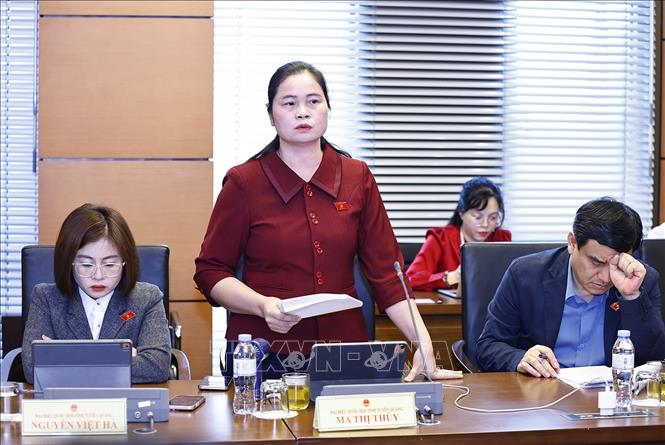
Discussing in the group, delegate Ma Thi Thuy (Tuyen Quang province) basically agreed with the necessity of promulgating the Law on E-commerce (amended). After nearly 20 years of implementing the Law, commercial activities have shifted from direct to digital environment at a very fast speed. However, new business models such as: Social networks for sales, livestream, cross-border trade, multi-service e-commerce platforms... do not have a complete legal corridor, leading to many shortcomings in management. According to the delegate, the promulgation of this law is very timely, creating a synchronous legal framework for digital economic development.
Analyzing the responsibilities of e-commerce platform owners (Article 13), delegate Ma Thi Thuy said that legalizing the responsibilities of e-commerce platform owners aims to ensure safety and transparency of transactions; protect the rights of consumers and sellers in compliance with the law, and strengthen the effectiveness of state management in the digital commerce environment.
Therefore, it is necessary to clearly establish the mandatory legal obligations of e-commerce platform owners in organizing, managing and supervising e-commerce transactions; create a legal basis for management agencies to handle the platform's responsibilities when it violates or fails to fulfill its obligations; and ensure compatibility with international practices.
Delegates proposed that it is necessary to study and regulate in the direction that the owner of the e-commerce platform is responsible for: Verifying, storing and publicizing the registration information of sellers operating on the platform; providing tools for consumers to reflect and complain and being responsible for receiving and handling such reflections; implementing a mechanism to notify and remove goods, services and content that violate the law when detected or when requested by competent state agencies; ensuring the security of information and personal data of users; storing transaction information according to regulations; coordinating with state management agencies in providing data, supporting tax collection and law enforcement; taking joint responsibility if knowing clearly or having grounds to determine that the seller violates the law on the platform but does not take measures to prevent and handle it.
According to the principles of international e-commerce law, e-commerce platforms are not only technical intermediaries but also independent legal entities, since they control the trading environment and directly benefit from this activity. Attaching legal responsibility to platforms is a balanced approach between promoting innovation and protecting the public interest.
Delegate Thuy said that Vietnam currently has more than 70,000 e-commerce websites and applications, many of which cross-border platforms have not fully complied with domestic regulations. Thousands of consumer complaints related to e-commerce transactions have not been effectively resolved due to platforms' refusal to take responsibility.
With such regulations, consumers will be better protected, reducing risks when shopping online; the complaint mechanism will be transparent, with clear handling points. Sellers will comply with the law, creating a fair competitive environment, reducing unfair competition from counterfeit and banned goods because the platform is forced to verify and remove violating sellers.
Platform owners will have to be responsible but enhance reputation and market trust. Regulators have a legal basis to request data and handle violations; inter-sectoral coordination and electronic data sharing.
Commenting on the Draft Law on E-commerce (amended), delegate Dang Thi Bao Trinh ( Da Nang city) affirmed that this is an important step in institutionalizing the national digital transformation policy. The delegate agreed with the Review Board that the scope of the Law needs to be expanded, covering electronic transactions in all fields, but at the same time, it must ensure consistency with specialized laws such as the Law on Commerce, the Law on Consumer Rights Protection, the Law on Cyber Security, etc.
Looking from the practical point of view, delegate Trinh found that many e-commerce activities today are not only the normal transactions of goods and services, but also include advertising, communication activities, and even anonymous financial transactions through intermediary platforms. These activities pose great risks to consumers and to state management, but have not been clearly regulated within the scope of regulation.
Therefore, the delegate suggested that the Drafting Committee consider adjusting the concept of e-commerce activities to include all activities that involve data collection, sharing, advertising intermediation, livestreaming, and brokerage on electronic platforms to avoid the legal gap that management agencies are currently confused about.
Considering that the Draft has identified this as a conditional investment and business sector, but has not clearly stipulated specific conditions and clearly distinguished between pre-inspection and post-inspection conditions, delegates suggested that the Drafting Committee consider clearly defining criteria for business conditions, avoiding formalities, creating burdens on administrative procedures, and at the same time needing to be consistent with the Investment Law. In particular, it is necessary to clarify the responsibility for registration and notification, clearly stipulate the authority and inspection and supervision mechanism of state management agencies to ensure transparency and fairness between types of platforms.
Regarding the responsibilities of entities operating e-commerce platforms (Article 14), delegate Dang Thi Bao Trinh said that the draft revised Law only regulates the responsibilities of e-commerce platforms for buying and selling goods, and does not cover service providing platforms.
Da Nang City delegates proposed to add obligations on feedback mechanisms, publicize contract termination procedures, and protect consumer data, similar to the provisions of the current Decree. At the same time, it is necessary to clarify the case where the platform only plays the role of a "connecting intermediary", specifically, only creating orders, not participating in delivery or payment, is it considered a direct e-commerce platform or not? From there, clearly determine joint responsibility in case of disputes or violations.
For intermediary platforms and social networks with e-commerce activities, it is necessary to clearly define the level of responsibility depending on the function: Having the function of ordering, payment or just being an advertising space, livestream. Platforms with online ordering and payment support functions must bear the same responsibility as intermediary e-commerce platforms, instead of only being regulated by advertising or cybersecurity laws.
Regarding livestream sales and affiliate marketing (Articles 20-24), opinions say that this is essentially a form of commercial advertising in the electronic environment, but in today's trend, this form has a very strong interaction and spread, directly affecting consumers. Therefore, delegates suggested that it is necessary to clearly stipulate measures to control and prevent violations in livestream sales activities; clearly define responsibilities between the subjects: Sellers, livestreamers and owners of e-commerce platforms. For products that require confirmation of advertising content, it is necessary to clearly stipulate that the seller is the subject requesting permission; the livestreamer must present a confirmation document to the platform before broadcasting live.
According to delegates, this both increases transparency and protects consumer rights, especially in the context of the sale of counterfeit goods, goods of unknown origin, and even banned goods on social networks...
Source: https://baotintuc.vn/thoi-su/quy-dinh-trach-nhiem-cua-cac-chu-the-van-hanh-nen-tang-thuong-mai-dien-tu-20251103182605580.htm


![[Photo] Comrade Nguyen Duy Ngoc holds the position of Secretary of the Hanoi Party Committee](https://vphoto.vietnam.vn/thumb/1200x675/vietnam/resource/IMAGE/2025/11/04/1762234472658_a1-bnd-5518-8538-jpg.webp)
![[Photo] Ho Chi Minh City Youth Take Action for a Cleaner Environment](https://vphoto.vietnam.vn/thumb/1200x675/vietnam/resource/IMAGE/2025/11/04/1762233574890_550816358-1108586934787014-6430522970717297480-n-1-jpg.webp)

![[Photo] The road connecting Dong Nai with Ho Chi Minh City is still unfinished after 5 years of construction.](https://vphoto.vietnam.vn/thumb/1200x675/vietnam/resource/IMAGE/2025/11/04/1762241675985_ndo_br_dji-20251104104418-0635-d-resize-1295-jpg.webp)
![[Photo] Ca Mau "struggling" to cope with the highest tide of the year, forecast to exceed alert level 3](https://vphoto.vietnam.vn/thumb/1200x675/vietnam/resource/IMAGE/2025/11/04/1762235371445_ndo_br_trieu-cuong-2-6486-jpg.webp)

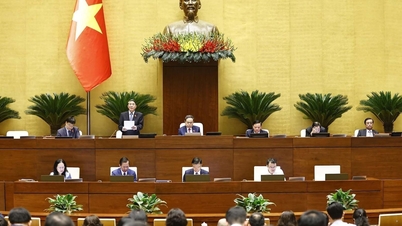
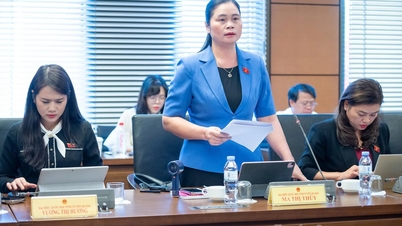








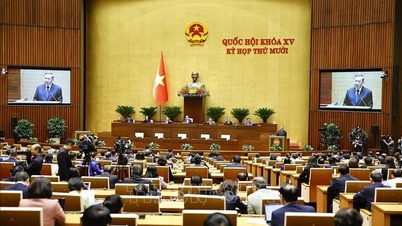
















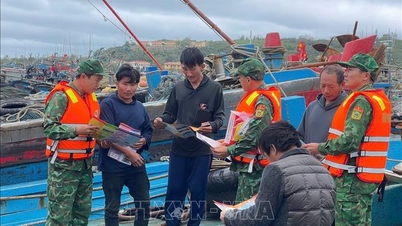







































































Comment (0)